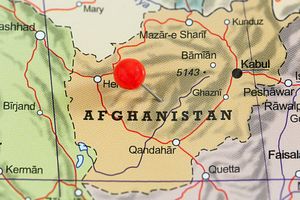Early morning on May 21, Taliban leader Mullah Akhtar Mansour was killed in Pakistan by a U.S. drone strike. When Mansour took the Taliban’s reigns after Mullah Omar’s death was surfaced in July 2015, he rejected any sort of peace deal with the Afghan government and planned several terrorist operations, including this year’s spring offensive, all over Afghanistan.
He was hard-liner from the word go and even killed his fellow fighters, particularly those who defied his leadership. Even though U.S. troops fought the Taliban alongside Afghan forces over the past decade or so, the Obama administration always insisted that the major reason for a continued U.S. role in the country was to target al-Qaeda and that the Taliban were not a “U.S enemy,” as U.S. Vice President Joe Biden articulated some years ago.
It has been reported that Obama himself personally ordered the strike and U.S. Special Forces used multiple drones to carry out the Mansour operation. If true, this shows a shift in the U.S. approach toward the Taliban. Obama’s personal involvement in the operation sends a strong message to the Taliban and its backers–chiefly the Pakistani military–indicating that Obama is now on the same page with the Afghan government.
Further, after the death of Mansour, it is very likely that Sirajuddin Haqqani, the leader of the Haqqani Network, will be appointed the next Taliban leader. Haqqani was appointed Mansour’s first deputy after Mullah Omar’s death. The Haqqani Network has orchestrated a considerable number of suicide attacks in Afghanistan that also killed many U.S. troops.
Haqqani’s appointment as the Taliban leader would make it even harder for the Afghan government broker a deal—he would continue the fighting. In case he is chosen to replace Mansour, the United States will become even more interested in helping the Afghan government resolve the issue with the Taliban and press Pakistan to stop supporting them, as Sirajuddin Haqqani is high on the Federal Bureau of Investigation’s most wanted list.
Afghan President Ashraf Ghani’s diplomacy strengthened the U.S.-Afghanistan relationship after it was pushed to the edge during his predecessor’s tenure and expanded Afghanistan’s outreach to South and Central Asia. The U.S. Congress has recently imposed strict conditions on aid to Pakistan. It stated that Pakistan needs to track down militants who operate from its territory, carrying out terror attacks in Afghanistan.
Ghani’s administration also recently cut a peace deal with Gulbuddin Hekmatyar, leader of Hezb-e-Islami Afghanistan (HIA). Hekmatyar was a staunch and grievous opponent of the Afghan government and actively fought against Afghan forces in the past. The agreement with HIA, the mere inclusion of the group by the Afghan government, invalidates the religious rationale for the Taliban’s fight and might even weaken their ranks as Hekmatyar has developed quite the reputation among the rank-and-file jihadists in Afghanistan.
Even though Ghani’s recent visit to Qatar allegedly had been for trade deals, there is strong speculation that he was there to seek help from Qatari officials who maintain great influence over Taliban, which operates an office in Doha.
Now that the United States is taking military action against the pro-violence Taliban in their own safe havens across the Durand Line in Pakistan, the only options seem to be a final peace deal or bust. They should avoid bringing Mansour and Haqqani-like hard-liners to their leadership and try to cut a deal with the Afghan government. Finally, the Taliban should not bank on Pakistan’s support because it too will finally succumb to regional and international pressure and give up the Taliban.
Samim Arif is an Afghan Fulbright scholar. He studies Political Journalism and Public Relations at Indiana University.

































